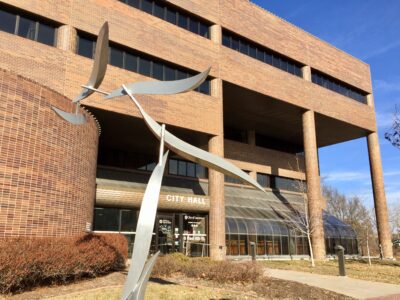KU officials want to step up effort toward four-year plan
Briskly paced graduation
Philip Denton is in his sixth year of college.
“I took the grand tour,” he said.
After changing his major several times and a short stint out of school working in Kansas City theater, he’s close to finishing his college career at Kansas University. It took him awhile, he said, but it was worth it.
“I guess it was a matter of finding out who I am,” said Denton, who is majoring in music education.
KU wants to curb the number of students, like Denton, who take more than four years to graduate. The university convened a “Graduate in Four” task force recently to study the issue. Task force recommendations are now being implemented.
Finishing on time saves students money, makes the institution more efficient, and helps KU’s reputation, according to the report. And lingering in school may not make a student smarter.
“There’s nothing to indicate that the longer a student stays, the better the education they’re getting,” said Kathleen McCluskey-Fawcett, senior vice provost and task force chairwoman.

A Kansas University student walks beneath a maple tree branch in front of Spooner Hall on Monday. A KU task force has come up with recommendations for getting students to graduate on time.
KU now urges incoming students to take a 15-credit course load rather than the minimum 12-credit schedule. Otherwise, students may find it harder to catch up and graduate on time.
The task force recommended all students be required to declare a major by the time they have completed 60 credit hours. That recommendation is being taken up by a committee in the College of Liberal Arts and Sciences, McCluskey-Fawcett said.
KU is working on a letter to be sent to incoming freshmen recommending they take the zero-credit introductory math course before coming to KU. About 800 incoming students take the course each fall, McCluskey-Fawcett said, and they could get a better start if it were already completed.
The task force also recommended the university limit the number of course drops, streamline the university’s course drop and withdrawal policies, and make it easier for students to take the classes they need.
That could mean a winter break session and a May session.
KU’s four-year graduation rate of 29 percent ranks 31st out of 34 Association of American Universities public institutions.
“If you look at the data that we’ve seen, it shows that we need to be doing a better job in this area,” said Stuart Bell, dean of the School of Engineering and a task force member.
Denton said his college experience made him who is today. But his path might not be for everyone.
Jessieca Mathews, a KU freshman from Overland Park, said she plans to graduate within three years. She’ll take a 22-credit course load next semester.
“I have to set goals,” she said, “otherwise I procrastinate really bad.”




